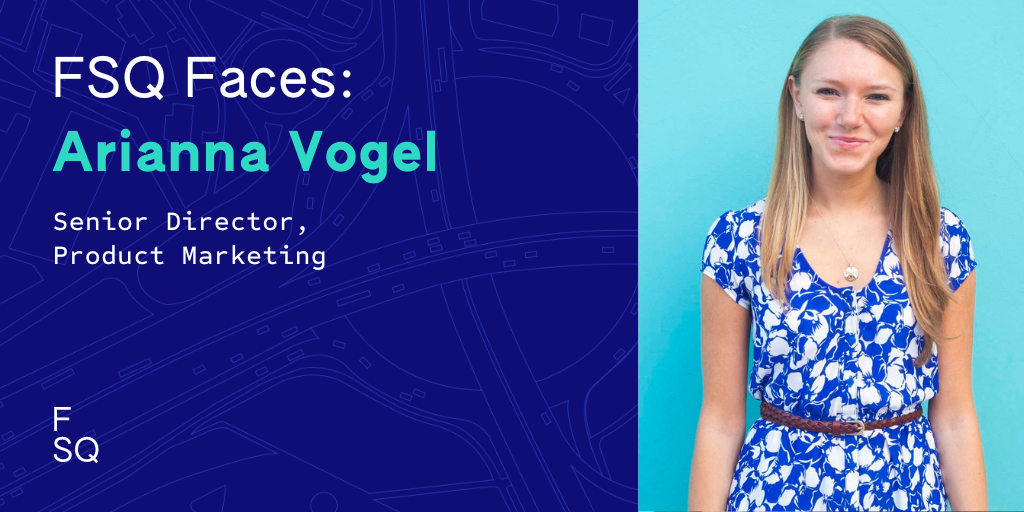The Tech Talent Pipeline (TTP) sat down with several members of our team, including Ben Ludman, Engineering Director, Clifton Jadoo, II, Engineering Recruiting Manager, and Henry Beaudin, Engineering Manager to better understand why and how Foursquare has diversified their pipeline of talent, while adopting their own Associate Engineer (AE) Program.
Read the full Q&A below:
Thank you both for sitting down with us today. To start, I’d love to hear how you heard about the Associate Engineer model – was this program on Foursquare’s radar for awhile?
Cliff: I went to a Tech Talent Pipeline (TTP) Peer Network event at LinkedIn, and when I heard that LinkedIn and Spotify use this program, it caught my attention. Before I could commit, I had a few questions relating to ROI and how to get buy-in. After talking with LinkedIn about their REACH program, I approached the SVP of HR at Foursquare with the idea. She saw the value in it immediately, so together we went to the SVP of Engineering with our proposal. Without much convincing, he said “Great. That sounds good to me. Let’s just start off with two.” Since this was our first time, we wanted to start small to ensure we had the bandwidth.
When Foursquare launched the program, what were some of the challenges you were trying to solve for?
Ben: For a long time, we’ve been working towards hiring people of all backgrounds and experience levels. Diversity across all of our engineering teams is really important to Foursquare in terms of helping us build better products and build stronger teams that work well together. The AE Program allows us to tap into new markets and new sets of experiences that engineers have.
Can you tell us a bit about Foursquare’s Associate Engineer Program?
Ben: Our program is six months. We pair all new engineers, not just associate engineers, with a mentor on the team who is their technical mentor, the first person that they turn to with technical questions. That person is responsible for helping make sure that their environment is set up correctly, that they have the tools they need to be productive, that they have someone to turn to with technical questions. They also have all the fundamental managerial support of the company, including weekly one-on-ones and feedback sessions. Everyone gets a customized ‘getting-started’ guide, that lays out the people you need to be talking to,what relationships you should be building across the organization and how to ramp up for success. And then they are assigned to a team, just like any other new hire.
So, are they thrown right into the fire on real projects?
Ben: They go through the same phases as a full-time hire, with on-boarding and then becoming productive and owning projects. But, our goal is to get them in a team directly as soon as possible. They join the team from day one and are working on real projects. The main difference is that they are going through a six month evaluation before we make the final decision to hire.
Do you allocate head count before they are brought on?
Cliff: Yes, we do. Before we start, we identify opportunistic head count. If we have a two-person opportunistic head count, that is allocated to the program before we identify the candidates.
Where are you recruiting the candidates for this program? Universities?
Ben: In the past, most of our recruiting was aimed at hiring more junior talent – college recruiting, career fairs, stuff like that. And I think that’s still an important piece of the tech recruiting that we do. However, we are trying to broaden our horizons and see where else there are interesting and talented engineers who are looking to join the industry and who are hungry to learn. Working with the Tech Talent Pipeline has allowed us to identify talent from boot camps like Flatiron School and public colleges through the City University of New York (CUNY). And since they vet the candidates, we’ve been able to find really strong matches through these channels.
Cliff: The TTP [Tech Talent Pipeline] really listens to what we need, then screens for candidates who would be a good fit. They have their own rubric and metrics that they share, so we don’t have to wonder about how they are evaluating candidates. Things are standardized which makes everything consistent and fair to all.
When you say a good “match”, what does that mean for Foursquare? What are some of the attributes that you look for in a candidate?
Ben: We’re looking for curiosity, tenacity, and a general excitement for the role. Candidates should have a desire to drive projects forward and to really have an opinion on what success of those projects look like. We see these qualities in a lot of the candidates that we’ve talked to through the Tech Talent Pipeline.
What were the backgrounds of your Associate Engineers before they started with Foursquare? Had they gone through boot camp or community prep?
Henry: One of the candidates went to CUNY Tech Prep, which is also a TTP program that we helped build. Both had a lot of tactical engineering skills that were very industry-relevant on day one. Before we launched this Program, we had another candidate do something similar. He came through boot camp and had a steeper learning curve, but was successful at Foursquare for three years before deciding to return to work at the boot camp where he was trained.
We have heard from some companies that when hiring for entry-level positions there is a mandate to hire candidates with experience. Was that true of Foursquare before you launched the AE Program?
Cliff: I know, it is a bit of a ‘catch 22’, right? How do you gain experience if every company requires you to have experience? For awhile, we have had summer-only internship programs. But not everyone is able to take a summer internship. I know that I wasn’t able to in college. Our Associate Engineer program gives us another way to expose new candidates to the company, gives them a foot in the door, and unlike a summer internship program, offers us more exposure to the candidates before having to make a decision on the hire.
For new hires or new apprentices without those technical skills, what is the process like to build those skills?
Ben: I think for Foursquare, as a company, we’ve got a lot of really interesting technology. Some of it is industry standard; some of it is not. The learning curve of our technology can be a tricky one for both seasoned engineers and new engineers alike. Candidates have to be people who are curious to look under the hood and see how this thing works, especially if they’re coming with fewer years of experience on the technical side. We’ll take the time to teach them, but they need to be the type of people who want to learn.
A lot of work goes into creating an AE Program. Why is it worth it? What is the benefit for Foursquare?
Henry: We have used the AE Program to hire engineers for our web team, and we found some really great, interesting engineers to join without a ton of experience in the industry, but who were hungry to learn and hungry to work on really impactful products and build their skills. It gives us exposure to a broader range of talent. And, as I’ve mentioned, the program is designed in a way that gives us a prolonged period of evaluation with these individuals.
Also, working with the Tech Talent Pipeline, frees up a lot of time on the HR side, since they find the candidates and vet them for us.
What is the type of company that should consider pursuing their own AE program?
Cliff: Every company could benefit from an Associate Engineer program. But I think it is easier to roll out on a smaller scale while focusing on the candidate experience. If you are going to launch a new program, I would recommend limiting it to a few candidates and not more than one or two locations.
Thanks so much for your time Cliff, Henry and Ben. Any parting words?
Ben: At the end of the day, we’re all just engineers building products. And, the fewer ways that we distinguish between ourselves, I think the better, the more cohesive teams, and the more productive teams we build. If we can bring on a diverse team of engineers, from different backgrounds and representing different perspectives, I am confident it will make us stronger as a company.
Invent the future with us!
Come join us on our mission to build the most trusted, independent platform for understanding how people move through the real world by visiting Foursquare.com/careers!



